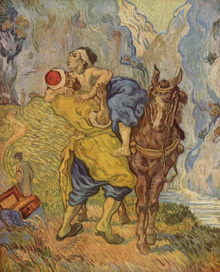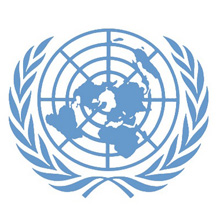Philosophy - Foundations
The Golden Rule is often defined as the Ethic of Reciprocity: the intersection of compassion and altruism. Some form of this guidance exists as a foundational statement in virtually all of the world’s religious traditions. Most systems of justice, both secular and ecclesiastical, trace their origins to an instance of this moral standard.

Although general agreement on this principle is widespread, the financial implications for a shared approach to knowledge remain contentious. Copyright law, issues of privacy, and methods of security are no longer the relatively simple set of rules that existed in the age of paper, when print was the primary medium of shared ideas.
Compatibility of Ethics and Reason
Compassion
When vanGogh painted the Good Samaritan, he created a beautiful vision of our ability to assist each other.
 |
Was the behavior of the Good Samaritan, quite different from the societal norm, irrational?
No. It was a sensible demonstration of reasonable attention to human interdependence.
Exemplary Impact of Universal Law
Ethics in the United Nations
As global governance has emerged in the aftermath of World War II, the United Nations has crafted declarations of human rights for all mankind.
 |
The Convention on the Rights of Persons with Disabilities and its Optional Protocol was adopted on 13 December 2006 at the United Nations Headquarters in New York.
Although many nations have passed legislation (such as ADA and Section 508 in the US), this declaration sends a clear signal that people with disabilities "are capable of claiming those [universal] rights and making decisions for their lives based on their free and informed consent as well as being active members of society".

